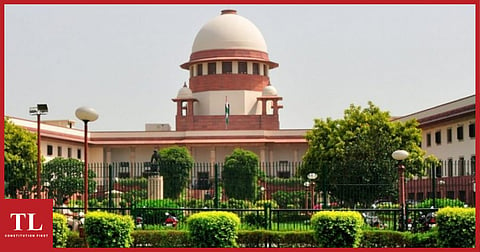

THE Supreme Court Tuesday refused to cancel the bail granted to 12 persons accused in the Kerala gold smuggling case. It, however, agreed to examine the question of law whether the smuggling of gold 'simplicitor' constitutes a "terrorist act" under the Unlawful Activities Prevention Act (UAPA).
A three-judge bench led by CJI NV Ramana said it was not inclined to interfere with the Kerala High Court's order granting bail to the accused persons, but added, "taking into consideration the submissions made by the learned Additional Solicitor General, let limited notice be issued to examine the question of law involved in the matters".
It tagged the petition with a similar case involving the same question of law.
The Central Government had approached the top court against the high court order affirming the bail granted to 12 persons by the Special NIA Court. Dismissing the NIA's appeal, the high court held smuggling of gold 'simplicitor' did not constitute a "terrorist act" under the UAPA.
The high court had agreed with the trial judge that materials produced before the court at that point of time were insufficient to hold prima facie that the accused had committed a "terrorist act".
"In other words, gold smuggling clearly covered by the provisions of the Customs Act will not fall within the definition of terrorist act in Section 15 of UA(P) Act unless evidence is brought out to show that it is done with the intent to threaten or it is likely to threaten the economic security or monetary stability of India", the high court said.
The NIA, Enforcement Directorate and Customs Department, probing the case have alleged that the money raised from the gold smuggling was used by the accused persons to fund anti-India terror outfits. The charge sheet filed by the investigation agency claimed that it was a conspiracy to threaten the economic security of India.
The Kerala gold smuggling case surfaced in July 2020, when 30 kilograms of gold was seized from the Thiruvananthapuram airport camouflaged as diplomatic cargo addressed to the UAE Consulate-General Office. As per law, diplomatic cargo enjoys immunity and remains free of routine customs examinations. Those accused in the case include M Sivasankar, principal secretary to Kerala Chief Minister and Swapna Surena, former executive secretary at the UAE Consulate-General's Office.